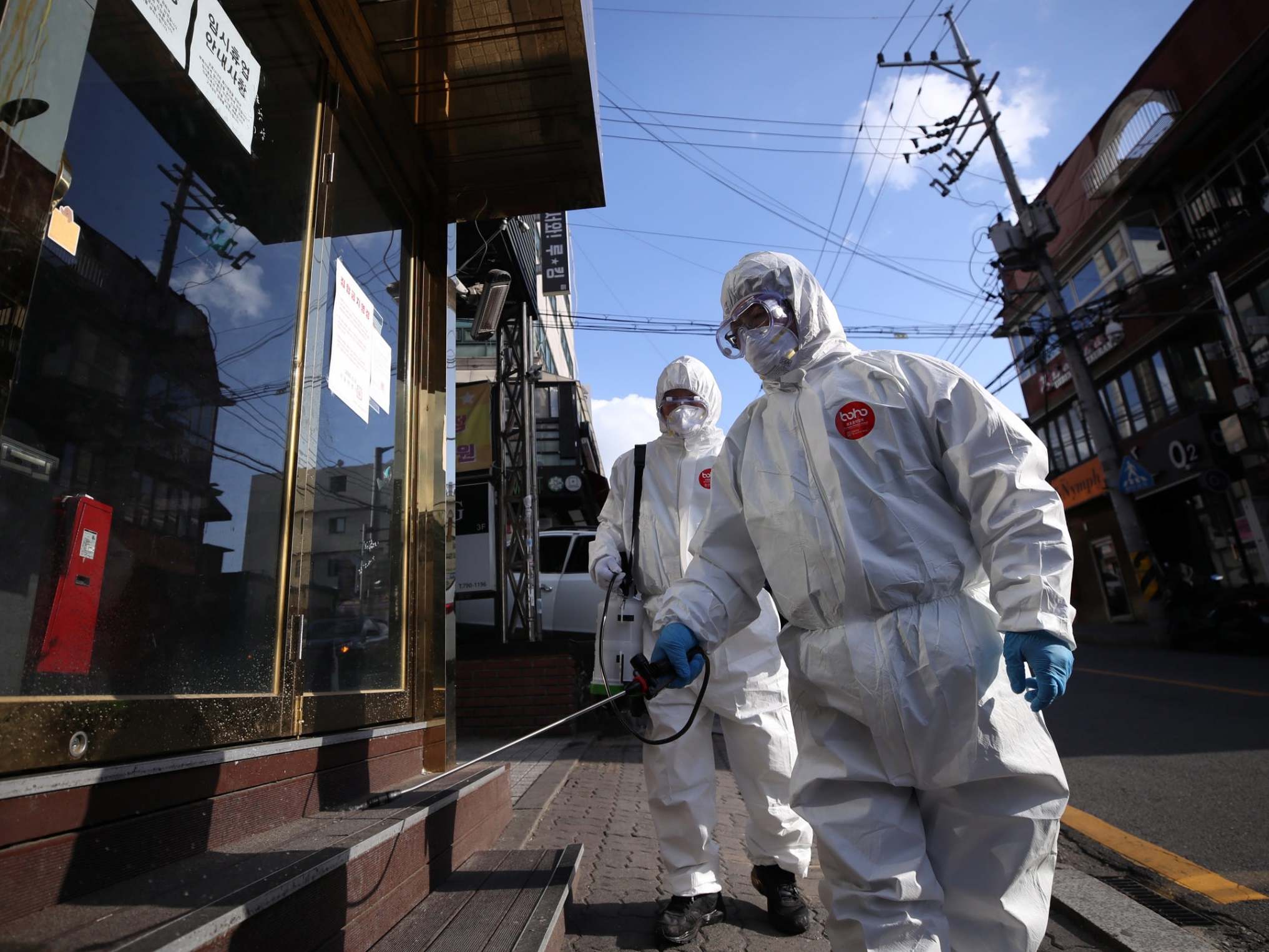Coronavirus: South Korea to grant more privacy to patients amid fears of LGBT+ discrimination
Authorities had been publishing the travel routes of infected people

Your support helps us to tell the story
From reproductive rights to climate change to Big Tech, The Independent is on the ground when the story is developing. Whether it's investigating the financials of Elon Musk's pro-Trump PAC or producing our latest documentary, 'The A Word', which shines a light on the American women fighting for reproductive rights, we know how important it is to parse out the facts from the messaging.
At such a critical moment in US history, we need reporters on the ground. Your donation allows us to keep sending journalists to speak to both sides of the story.
The Independent is trusted by Americans across the entire political spectrum. And unlike many other quality news outlets, we choose not to lock Americans out of our reporting and analysis with paywalls. We believe quality journalism should be available to everyone, paid for by those who can afford it.
Your support makes all the difference.South Korean health authorities said on Thursday they would revise their practice of publicising the travel routes of coronavirus patients due to fears of a backlash against people who attended nightclubs at the centre of a new outbreak.
After weeks of nearly no new domestic coronavirus cases, South Korea has seen a new spike in infections centred around nightclubs and bars in some of Seoul’s most popular nightlife neighbourhoods.
Investigators have struggled to find around 2,000 people wanted for testing, an effort complicated by public criticism of the clubgoers, as well as concerns about discrimination as several of the clubs cater to members of the LGBT+ community.
While clubs and bars were required to log the names and contact phone numbers for all visitors as a condition of reopening, much of the information turned out to be incomplete or false, officials said.
That has left officials combing through cellphone location data and CCTV footage to try to identify some customers, while publicly pleading for people to come forward and be tested.
Officials say they understand some individuals may fear social stigmatisation, and have promised to try to reduce the amount of information usually released about confirmed patients.
South Korea has typically released information like a patient’s age, gender, and places visited immediately before testing positive, as well as in some cases, the last names of patients and general occupations.
About 2,000 people are still being sought by officials.
“The health and quarantine authorities have expanded anonymous testing nationwide to prevent unnecessary violations of privacy,“ Kim Gang-lip, the vice health minister, said at a meeting of health authorities on Thursday, according to his office.
“In addition, we plan to revise the guidelines to prevent excessive disclosure of a patient’s travel itinerary.”
People who ignore calls to be tested can face a fine of up to 2 million won (£1334), health ministry official Yoon Tae-ho told a briefing.
South Korea reported 29 new cases as of midnight on Wednesday, bringing the country’s total to 10,991 with 260 deaths.
Of those new cases, 20 were linked to the outbreak from the clubs in Seoul’s Itaewon neighbourhood. A total of 131 cases have been linked to that outbreak, including clubgoers as well as secondary infections in family members, coworkers, and students.
In one case, a young man who visited a club is accused of not disclosing his work at a school in the nearby city of Incheon.
After officials used cellphone data to discover his workplace, they confirmed at least 11 related infections, including among the man’s students.
That case has also led to 1,700 people in Incheon being tested and quarantined after some of the students went to church on Sunday.
The cluster of infections in Itaewon and other nightlife spots came as the country was easing social distancing guidelines, and the cases led to public criticism of both the clubgoers as well as health officials who allowed the clubs to reopen.
“I think the authorities missed these venues,” said Kim Dong-hyun, president of Korean Society of Epidemiology. “They had grounds to suspend operations of the facilities earlier, but it’s unclear why they didn’t.”
South Korean media reported that some of the restaurants and other businesses in Itaewon have had to stop trading for the first time in 20 years, and some taxi drivers are refusing to take passengers to or from the neighbourhood.
Reuters
Join our commenting forum
Join thought-provoking conversations, follow other Independent readers and see their replies
Comments